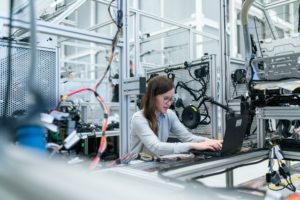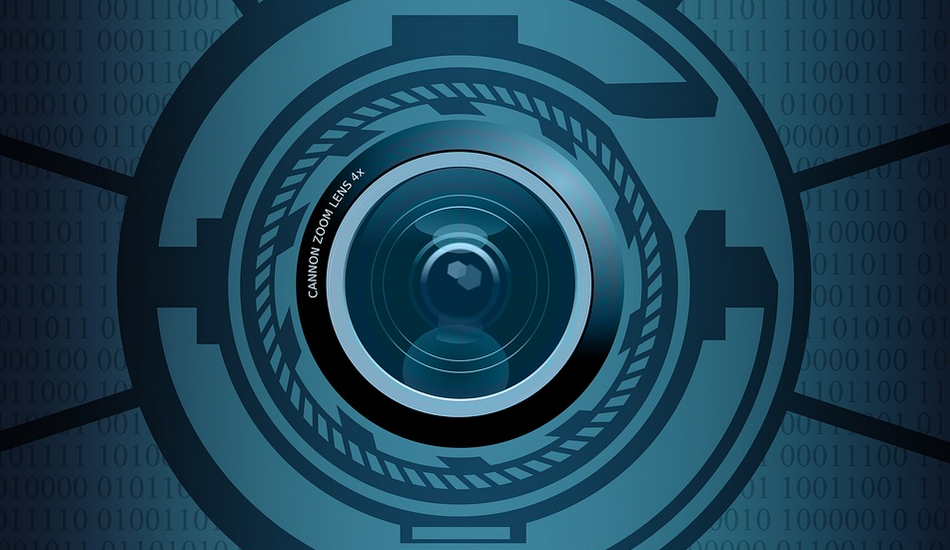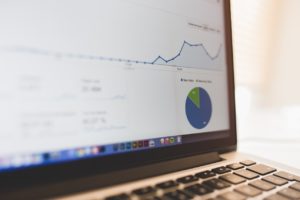Unleashing Potential: How AI-Powered Software Is Driving Technological Advancement
In a world where innovation races ahead at lightning speed, one thing is clear: the future belongs to those who harness the power of artificial intelligence. From revolutionizing industries to transforming everyday tasks, AI-powered software is not just a trend—it’s a catalyst for unprecedented technological advancement. Imagine software that learns and adapts, turning complex challenges into seamless solutions and igniting creativity in ways we never thought possible. In this blog post, we’ll explore how AI is unlocking potential across various sectors, redefining what’s achievable, and shaping our digital landscape for generations to come.
What Is AI-Powered Software?
 AI-powered software refers to applications that leverage artificial intelligence (AI) algorithms to perform tasks that would traditionally require human intelligence. This could include learning from data, recognizing patterns, making decisions, and understanding natural language. The critical difference between traditional and AI-powered software is that AI can adapt, learn, and improve over time—making it more efficient and powerful. AI-powered software uses technologies like machine learning (ML), natural language processing (NLP), and computer vision to carry out tasks. These tools help the software “learn” from data and experiences, providing more personalized, intelligent, and automated solutions.
AI-powered software refers to applications that leverage artificial intelligence (AI) algorithms to perform tasks that would traditionally require human intelligence. This could include learning from data, recognizing patterns, making decisions, and understanding natural language. The critical difference between traditional and AI-powered software is that AI can adapt, learn, and improve over time—making it more efficient and powerful. AI-powered software uses technologies like machine learning (ML), natural language processing (NLP), and computer vision to carry out tasks. These tools help the software “learn” from data and experiences, providing more personalized, intelligent, and automated solutions.
Automation of Repetitive Tasks
One of the most exciting benefits of AI-powered software is its ability to automate repetitive, time-consuming tasks. This is especially valuable in industries like customer service, finance, and healthcare, where routine tasks can take up significant time. AI chatbots, for example, are already handling customer inquiries 24/7, allowing businesses to respond to customers quickly and efficiently. In finance, AI systems can analyze large datasets to detect fraud or predict market trends, reducing the need for manual intervention. By automating these tasks, AI frees up human workers to focus on more complex, creative, and strategic tasks, leading to increased productivity and cost savings for businesses.
Personalized User Experiences
AI is transforming how software interacts with users by making it more personalized. Whether it’s recommending products on an e-commerce site, suggesting movies on a streaming platform, or tailoring search results on Google, AI is constantly learning from user behavior to deliver more relevant content and experiences. This personalization is driven by machine learning models that analyze vast amounts of user data to predict what someone might like or need. For developers, AI-powered software can offer more customized experiences, creating stronger user engagement and satisfaction. The ability to personalize content and interactions is no longer a “nice-to-have”—it’s becoming a must-have for businesses wanting to stay competitive.
Smarter Decision Making
AI isn’t just about making things faster or more accessible—it’s also about making smarter decisions. Machine learning algorithms can analyze large datasets and provide insights that humans might miss. For example, AI can help doctors diagnose diseases more accurately by analyzing medical images or patient data in industries like healthcare. AI-powered software can also assist businesses in making data-driven decisions. With AI’s ability to process and analyze data in real time, companies can get actionable insights that can help them optimize operations, improve customer service, and drive growth. This leads to better outcomes: increased efficiency, higher revenue, or improved customer satisfaction.
Improved Security and Fraud Detection
 As cybersecurity threats become more sophisticated, AI is stepping in to help protect businesses and users. AI-powered software can detect unusual patterns of behavior, identify potential security breaches, and automatically respond to threats in real time. For example, AI can monitor network traffic to spot anomalies that might indicate a cyber attack or use facial recognition to enhance security in physical locations. In financial services, AI is already being used to spot fraudulent transactions by recognizing patterns that would be difficult for humans to detect. This makes AI a powerful tool in the ongoing fight against cybercrime, helping organizations stay one step ahead of malicious actors. Software Development Fort Wayne, for example, has been leveraging AI for its clients in the financial industry to enhance security and prevent fraud.
As cybersecurity threats become more sophisticated, AI is stepping in to help protect businesses and users. AI-powered software can detect unusual patterns of behavior, identify potential security breaches, and automatically respond to threats in real time. For example, AI can monitor network traffic to spot anomalies that might indicate a cyber attack or use facial recognition to enhance security in physical locations. In financial services, AI is already being used to spot fraudulent transactions by recognizing patterns that would be difficult for humans to detect. This makes AI a powerful tool in the ongoing fight against cybercrime, helping organizations stay one step ahead of malicious actors. Software Development Fort Wayne, for example, has been leveraging AI for its clients in the financial industry to enhance security and prevent fraud.
Innovation in Various Industries
AI-powered software is not just making waves in tech companies—it’s transforming a wide range of industries. In healthcare, AI is being used to develop new drugs, optimize treatments, and even assist in surgeries. In retail, AI is revolutionizing inventory management and streamlining supply chains. In manufacturing, AI is being used for predictive maintenance and quality control. The applications are limitless. AI is becoming essential for companies looking to stay ahead of the curve, improve their operations, and create innovative products and services.
The Road Ahead: Challenges and Opportunities
While AI-powered software holds incredible potential, it’s not without its challenges. One of the biggest concerns is data privacy—AI systems rely heavily on large amounts of data to function effectively, and handling that data responsibly is crucial. There’s also the issue of algorithmic bias, where AI systems can unintentionally perpetuate existing biases in data, leading to unfair outcomes. Despite these challenges, the opportunities for AI-powered software are vast. As technology continues improving, we can expect even more sophisticated AI tools that can learn and adapt faster, making them even more valuable for businesses and users.
AI-powered software is undoubtedly the next giant leap in technology. AI is changing how we interact with software and how businesses operate by enabling automation, personalization, smarter decision-making, and improved security. As AI continues to evolve, we can expect even more groundbreaking innovations that will shape the future of software development and the tech industry.…













 Live streaming also allows for greater interactivity between viewers and the game. Many live-streaming platforms offer chat rooms and social media integration so viewers can discuss the game in real-time with other fans worldwide. This interactivity enhances the viewing experience, allowing fans to engage with others who share the same passion for the sport. Fans can share their opinions, ask questions, and even make predictions about the game’s outcome.
Live streaming also allows for greater interactivity between viewers and the game. Many live-streaming platforms offer chat rooms and social media integration so viewers can discuss the game in real-time with other fans worldwide. This interactivity enhances the viewing experience, allowing fans to engage with others who share the same passion for the sport. Fans can share their opinions, ask questions, and even make predictions about the game’s outcome. Live streaming is also cost-effective for sports fans. Traditional TV packages can be costly, and many sports leagues and teams offer streaming services that are much more affordable. By subscribing to these services, fans can access all the games they want to watch without paying for channels they don’t need. Additionally, live-streaming services often offer free trials and promotions, allowing fans to try the service before committing to a subscription.
Live streaming is also cost-effective for sports fans. Traditional TV packages can be costly, and many sports leagues and teams offer streaming services that are much more affordable. By subscribing to these services, fans can access all the games they want to watch without paying for channels they don’t need. Additionally, live-streaming services often offer free trials and promotions, allowing fans to try the service before committing to a subscription.
 Another key consideration is that less is often more regarding audio content. People have shorter attention spans when listening to audio than reading text. As such, you’ll want to ensure that your audio content is concise and to the point. Otherwise, you run the risk of losing your audience’s attention. It’s also important to keep in mind that people consume audio content differently than they do text. People usually do other things simultaneously when listening to the audio, such as driving or working out. This means that you’ll need to make your content easy for people to digest while still providing value.
Another key consideration is that less is often more regarding audio content. People have shorter attention spans when listening to audio than reading text. As such, you’ll want to ensure that your audio content is concise and to the point. Otherwise, you run the risk of losing your audience’s attention. It’s also important to keep in mind that people consume audio content differently than they do text. People usually do other things simultaneously when listening to the audio, such as driving or working out. This means that you’ll need to make your content easy for people to digest while still providing value. Finally, when choosing a
Finally, when choosing a 
 One of the best ways to use technology to keep yourself and your family safe is by staying informed. There are several ways to do this, but social media is one of the most effective. You can follow news outlets, safety organizations, and even first responders on social media to stay up-to-date on what is happening in your area. Many social media platforms have features that allow you to receive emergency alerts from local authorities. Another way to stay informed is by downloading safety apps onto your smartphone.
One of the best ways to use technology to keep yourself and your family safe is by staying informed. There are several ways to do this, but social media is one of the most effective. You can follow news outlets, safety organizations, and even first responders on social media to stay up-to-date on what is happening in your area. Many social media platforms have features that allow you to receive emergency alerts from local authorities. Another way to stay informed is by downloading safety apps onto your smartphone. Another way to use technology to keep yourself and your family safe is by tracking your belongings. It is imperative if you have valuable items that you need to keep track of. There are different ways to track your belongings, but GPS is one of the most effective. GPS tracking devices can be placed on almost anything, and they allow you to track the location of your belongings in real-time. It can be beneficial if you ever lose something or if it is stolen.
Another way to use technology to keep yourself and your family safe is by tracking your belongings. It is imperative if you have valuable items that you need to keep track of. There are different ways to track your belongings, but GPS is one of the most effective. GPS tracking devices can be placed on almost anything, and they allow you to track the location of your belongings in real-time. It can be beneficial if you ever lose something or if it is stolen.
 It is essential to buy quality spy cameras with high resolution because it will be easier to recognize intruders. Most wireless cameras have high resolution and enable you to record quality videos. Cameras with high resolution will provide higher quality videos and are clear to show the faces of people. It is essential to invest in buying a spy camera with the best lens quality to provide quality images. Check for online reviews on the internet to know what customers say about the quality of the spy camera lens before buying it. Therefore, consider choosing the best video resolution of about 1080p because they show clear images.
It is essential to buy quality spy cameras with high resolution because it will be easier to recognize intruders. Most wireless cameras have high resolution and enable you to record quality videos. Cameras with high resolution will provide higher quality videos and are clear to show the faces of people. It is essential to invest in buying a spy camera with the best lens quality to provide quality images. Check for online reviews on the internet to know what customers say about the quality of the spy camera lens before buying it. Therefore, consider choosing the best video resolution of about 1080p because they show clear images.





 Finances are essential when seeking to get the best goods and services from any organization or individual. From the list of recommendations that you will manage to compile, build a realistic
Finances are essential when seeking to get the best goods and services from any organization or individual. From the list of recommendations that you will manage to compile, build a realistic 




 A website that fails to support peak demand, or one that remains static while new information comes and dominates the market will be a detriment to the business. Consumers are always on their phones, and taping on a link takes less than a second. Websites and other online resources must work together as an ecosystem to allow people to watch videos, read and write reviews about products. Also, they can help people get jobs in recruitment portals, organize themselves as fans and many other things. If there is no connection, then there would be no reliable way of communicating the brand values or feedback from consumers. Consultants will help fix the online ecosystem for your firm.
A website that fails to support peak demand, or one that remains static while new information comes and dominates the market will be a detriment to the business. Consumers are always on their phones, and taping on a link takes less than a second. Websites and other online resources must work together as an ecosystem to allow people to watch videos, read and write reviews about products. Also, they can help people get jobs in recruitment portals, organize themselves as fans and many other things. If there is no connection, then there would be no reliable way of communicating the brand values or feedback from consumers. Consultants will help fix the online ecosystem for your firm.
